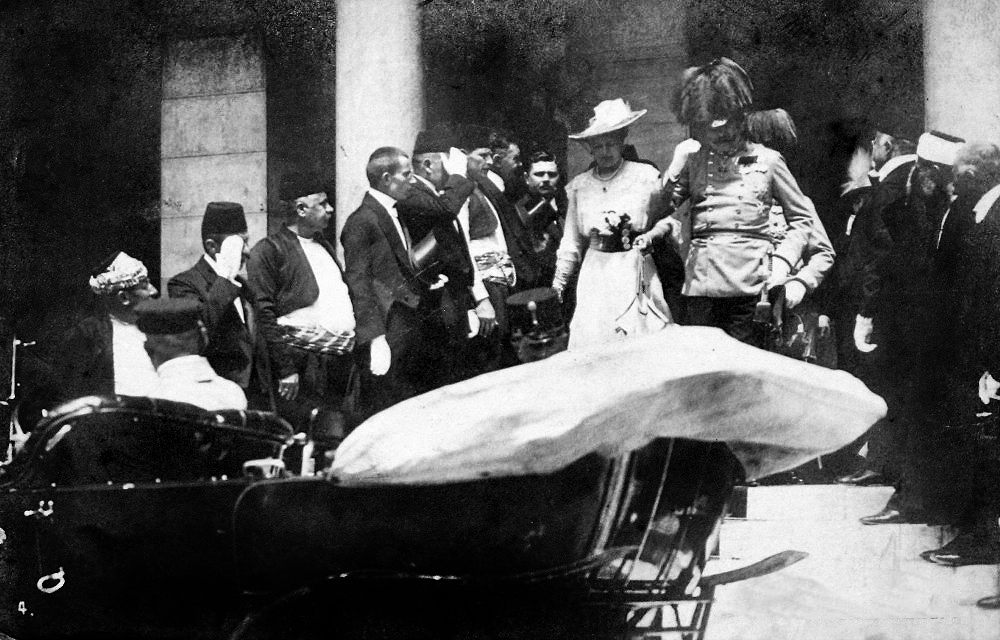“And so, they’ve killed our Ferdinand” said a charwoman to Josef Švejk, summarising the latest news. “You’ll come out badly with this Ferdinand”, warned in a soft voice the police inspector of those arrested on this occasion in Prague. Surprisingly for everyone, they included the good soldier Švejk, the title character of Jaroslav Hašek’s now classic novel.
The assassination attempt on the heir to the throne of the Austro-Hungarian monarchy, Archduke Franz Ferdinand Habsburg, took place on 28 June 1914 in Sarajevo. Austria-Hungary recognised the Serbian government as its initiator. Despite Serbia’s agreement to almost all demands made in this connection, the Habsburgs did not feel satisfied and a tangle of diverse interests and international dependencies led to the unleashing of one of the largest armed conflicts in world history.
The start of the First World War is considered to be 28 July 1914 when Austria-Hungary declared war on Serbia. Serbia-supporting Russia and France ordered mobilisation; in response, the German Empire, an ally of the Austro-Hungarian monarchy, declared war on these countries (1 and 3 August). Britain, in turn, declared war on Germany on 4 August. Turkey and Bulgaria (the Central Powers) supported Germany and Austria-Hungary, with more European states joining the opposing side, including the United States, Brazil China and the Kingdom of Hijaz (the Entente).
The outbreak and rapid escalation of the First World War marked the end of la belle époque – the beautiful era, i.e. the few decades of relative peace and cultural, economic and technological dominance of Europe that preceded the outbreak of war. The conviction of their own superiority, progress, and mission to civilise left many Europeans, especially those belonging to the educated elite, shocked by the developments. More than 14 million people died in the war that lasted until 11 November 1918 in Europe, Africa and Asia. Poles took advantage of the situation and the weakening of the existing powers, resulting in the creation of the Second Republic of Poland.





